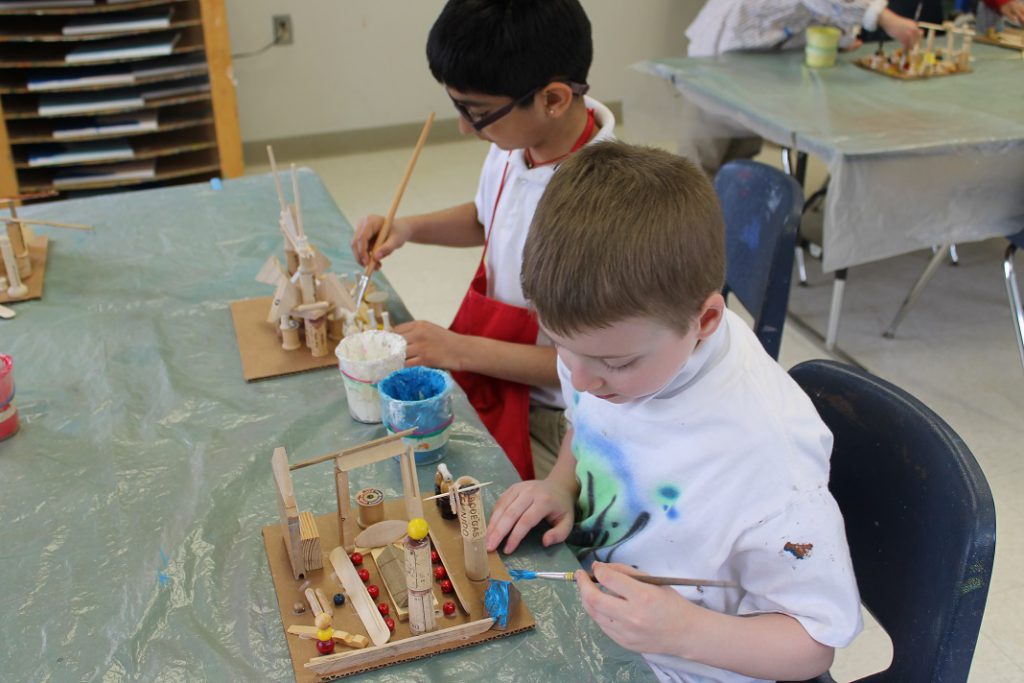The arts play a crucial role in society, serving as a cornerstone for cultural identity and heritage while fostering economic growth and community engagement. Through various forms—music, dance, visual arts, and literature—arts preserve traditions and promote social cohesion. They enhance education by nurturing critical thinking and creativity, while also supporting emotional and mental well-being. Additionally, the arts inspire innovation and create job opportunities, contributing to local economies. By championing diversity and facilitating communication, the arts connect individuals, bridging gaps between cultures and fostering empathy. Ultimately, recognizing the significance of the arts is vital for a vibrant, inclusive society.
1. Cultural Identity and Heritage
The arts play a vital role in preserving and promoting cultural identity and heritage. Each form of art—be it music, dance, visual arts, or literature—reflects the unique experiences and values of a community. These creative expressions serve as a record of history and tradition, fostering a sense of belonging and continuation among generations. Through festivals, performances, and exhibitions, the arts allow individuals to connect with their roots, celebrating the diversity that enriches our global society.
2. Economic Impact
The arts significantly contribute to the economy, generating revenue and creating jobs. Cultural industries, including film, theater, visual arts, and music, provide employment opportunities and stimulate local economies through tourism. Cities with vibrant art scenes often attract visitors, boosting spending in hospitality, retail, and transportation sectors. Furthermore, the arts inspire innovation and creativity in various industries, ensuring they remain competitive and dynamic in a fast-paced world.
3. Education and Critical Thinking
Incorporating arts into educational curricula enhances critical thinking and problem-solving skills among students. Engaging with the arts encourages creativity, allowing students to explore different perspectives and express themselves in unique ways. Studies show that students who participate in arts education perform better academically and develop a broader understanding of complex social issues. The ability to think critically and creatively is a fundamental skill in today’s ever-evolving job market.
4. Emotional and Mental Well-being
The arts have a profound impact on emotional and mental health. Engaging in artistic activities—whether creating, performing, or simply appreciating art—provides a therapeutic outlet for self-expression and healing. Participation in the arts has been linked to reduced anxiety, depression, and stress, encouraging individuals to explore their emotions and experiences. Community art programs and therapy through art can play pivotal roles in supporting mental health, fostering resilience, and providing a sense of belonging.
5. Social Cohesion and Community Engagement
The arts have the power to bring people together, fostering social cohesion and community engagement. They create spaces for dialogue, encouraging collaboration and understanding among diverse groups. Community art projects, public performances, and festivals unite individuals, breaking down barriers and building relationships. The arts inspire activism and social change, providing a platform for marginalized voices and issues, thus cultivating an inclusive society.
6. Inspiring Innovation and Creativity
Arts encourage innovation by pushing boundaries and challenging the status quo. The process of creating art fosters a mindset of experimentation and risk-taking, which is essential for progress in all fields. Businesses and organizations are increasingly recognizing the importance of integrating artistic approaches to problem-solving and product development. By marrying the arts with science, technology, engineering, and mathematics (STEAM), society can inspire groundbreaking ideas and solutions for complex challenges.
7. Enhancing Communication Skills
Engagement in the arts cultivates stronger communication skills. Whether through storytelling, music, or visual representation, artists learn to convey complex ideas and emotions effectively. This skill is invaluable across various contexts, enabling individuals to articulate their thoughts, engage audiences, and foster understanding in interpersonal relationships. The arts teach the nuances of non-verbal communication—body language, tone, and expression—enriching personal and professional interactions.
8. Promoting Diversity and Inclusion
The arts serve as a powerful medium for promoting diversity and inclusion within society. By showcasing a spectrum of voices, experiences, and cultural narratives, the arts challenge stereotypes and foster empathy. Artistic representations of different communities encourage audiences to appreciate and celebrate diversity, paving the way for a more equitable society. Emphasizing diversity in the arts not only reflects the real world but also inspires change and awareness regarding social justice and equality.
9. Preservation of Language and Stories
Art forms such as poetry, theater, and storytelling are instrumental in preserving language and narratives that might otherwise be lost. Through these mediums, cultural and historical stories are passed down through generations. The arts become a vessel for sharing wisdom, values, and experiences, ensuring that diverse languages and dialects thrive in an increasingly globalized world. This preservation not only enriches the tapestry of human experience but also reinforces the importance of language in identity formation.
10. Connection to Humanity
At its core, the arts encapsulate the essence of what it means to be human. They allow individuals to explore fundamental questions about existence, identity, love, and loss. Through engagement with art, people can confront their own experiences while connecting with the collective human narrative. Whether through painting, music, literature, or performance, the arts remind us of our shared emotions and experiences, fostering compassion, understanding, and connection among individuals across the globe.
In conclusion, the arts are not merely a luxury or pastime but an essential foundation for a thriving society. They play an indispensable role in shaping culture, promoting economic growth, enhancing education, and fostering mental health. By recognizing and supporting the importance of the arts, we can build a more vibrant, inclusive, and meaningful world for generations to come.
